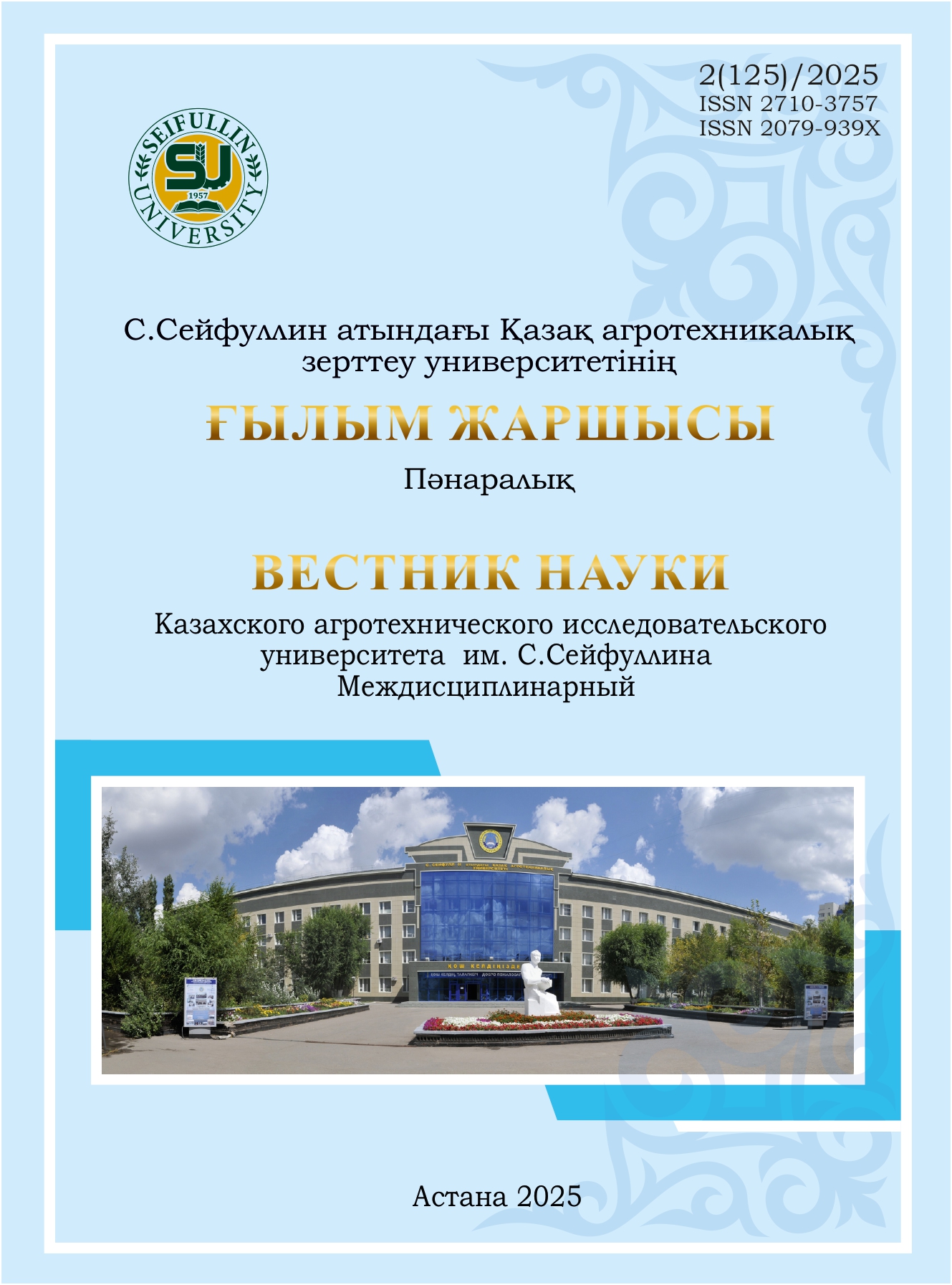Использование карбонизированных осадков сточных вод в качестве минерального удобрения: экологические и агрономические аспекты
DOI:
https://doi.org/10.51452/kazatu.2025.2(125).1978Ключевые слова:
иловый осадок; карбонизация; пиролиз; устойчивое сельское хозяйство; эффективное управление отходами; агроэкология.Аннотация
Предпосылки и цель. В условиях растущей потребности в устойчивых сельскохозяйственных технологиях проведено исследование возможности вторичного использования илового осадка сточных вод, подвергнутого пиролизу, в качестве удобрения. Целью работы было выявление оптимальных температур карбонизации илового осадка для получения безопасного и эффективного продукта, способствующего росту растений.
Материалы и методы. В качестве модели использовалась микрозелень рукколы (Eruca sativa), благодаря ее быстрой реакции на изменения условий среды. Подготовлены образцы почвы с различным содержанием карбонизированного осадка (10-30%), обработанного при 350-700 °C, и применены шесть режимов полива, включая гумат калия.
Результаты. Результаты эксперимента показали, что наиболее благоприятное влияние на рост растений оказывает осадок, карбонизированный при 700 °C: отмечено ускоренное прорастание, удлинение ростков и повышение урожайности. Это связано с детоксикацией материала и сохранением питательных веществ в процессе термической обработки.
Заключение. Исследование подчеркивает потенциал карбонизированного ила как экологически обоснованной альтернативы традиционным удобрениям и его вклад в развитие циркулярной экономики.

